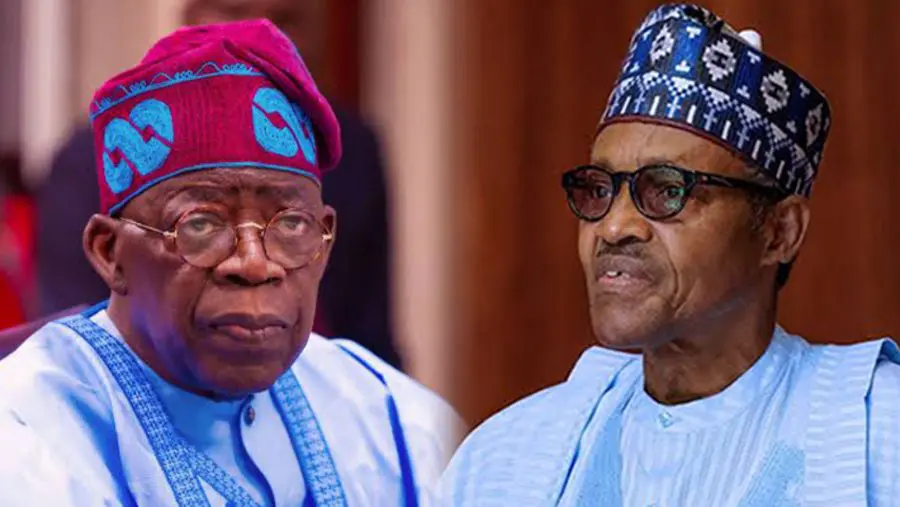
Following the passing of former Nigerian President Major General Muhammadu Buhari (Rtd) on July 13, 2025, President Bola Ahmed Tinubu paid a solemn tribute to his predecessor, calling him “a patriot, a soldier and a statesman whose life was marked by service and sacrifice.”
Buhari died in a hospital in the United Kingdom at the age of 82, after battling a prolonged illness. His death was confirmed by President Tinubu in an official statement that announced the commencement of seven days of national mourning.
In his message, Tinubu acknowledged Buhari’s legacy as a leader devoted to “national unity, discipline in the public service, and his determination to fight corruption.”
The late Buhari first came to power as a military ruler from January 1984 to August 1985, following a coup.
After a return to democracy in Nigeria, he contested the presidency several times before his eventual victory in 2015. He led the country as a civilian president for two terms, until 2023.
President Tinubu extended condolences to Buhari’s widow, Aisha Buhari, his family, and the people of Katsina State, particularly the Daura Emirate, the late president’s hometown.
As part of the national mourning, Tinubu ordered that all Nigerian flags be flown at half-mast for seven days beginning Sunday, July 13, and announced an extraordinary session of the Federal Executive Council to be held on Tuesday, July 15, in Buhari’s honor.
The government also confirmed plans for a state funeral, in recognition of what officials described as “his significant contributions to the nation.”
Buhari’s death has triggered widespread reactions across Africa, with leaders from the continent expressing their sorrow and paying homage.
Gambian President Adama Barrow, Guinea-Bissau’s Umaro Sissoco Embaló, Chad’s Mahamat Idriss Déby Itno, Sierra Leone’s Julius Maada Bio, Senegal’s Bassirou Diomaye Faye, Ethiopia’s Abiy Ahmed, and African Union Commission Chairperson Mahmoud Ali Youssouf each lauded Buhari as “a great statesman,” “a committed Pan-Africanist,” and “a leading figure in African political life.”
As Nigerians begin a period of mourning, Buhari’s complex legacy—marked by discipline, determination, and controversy—continues to stir reflection across the nation and beyond.



